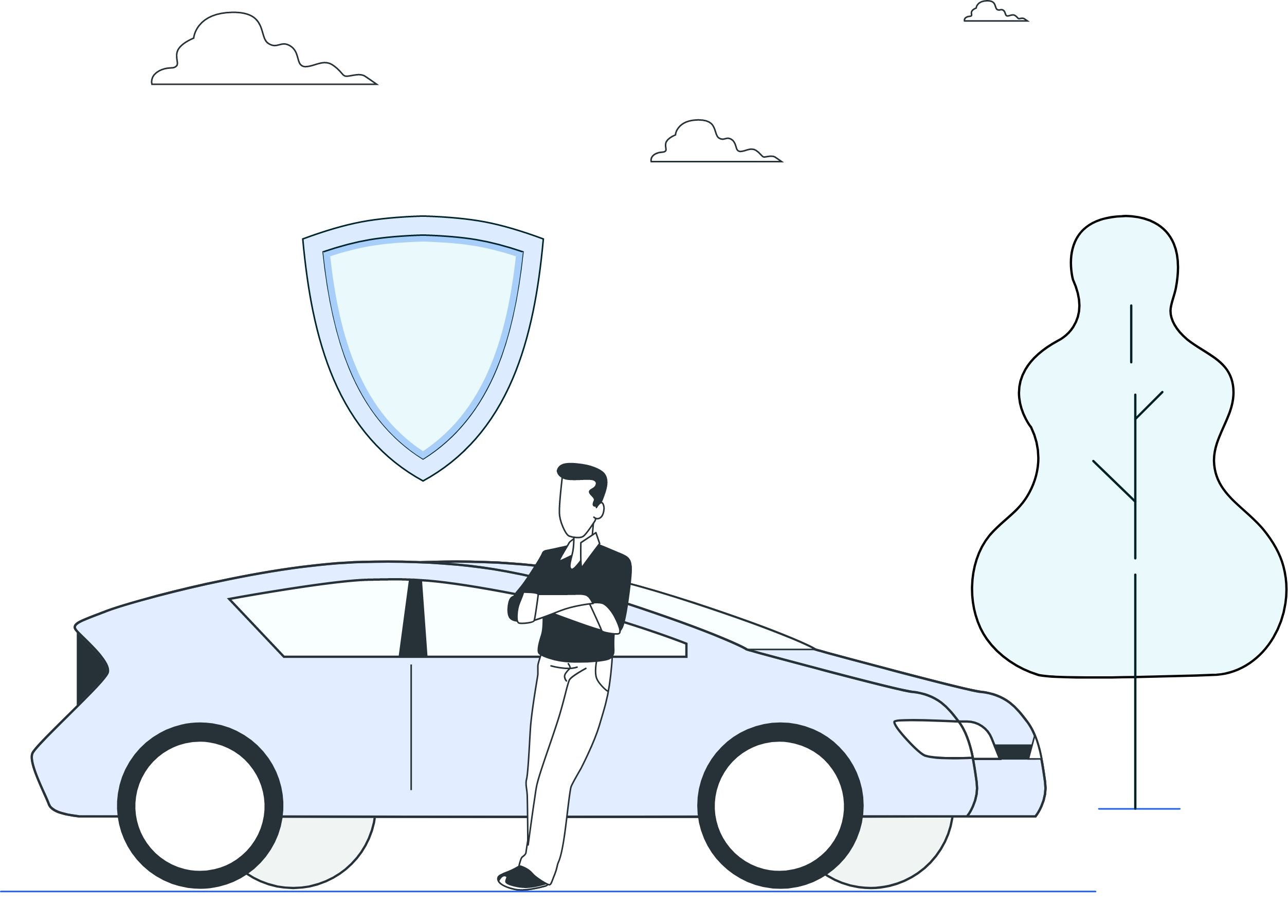RTO Rules for Car Scrapping and Deregistration
The RTO has established RTO rules for scrapping vehicles after noting the problem of old cars in India. The new RTO scrap policy states that vehicles older than 15 years are not allowed to be used. They can be moved or transferred to a different state for re-registration, but it is a nuisance. You might instead scrap the vehicle and opt for deregistration. The scrapping strategy in India ensures that more outdated automobiles or vehicles are removed from the road and that people purchase new ones. Before the policy is implemented, a few things should be considered, such as the city where the car is being used, the fuel, and the car's age. However, before we talk about how to scrap a car, there is something else you need to know about.
If you are someone who has been using a car long enough that you need to know about scrapping and deregistration, you surely know about the importance of 4-wheeler insurance. In India, all cars need 4-wheeler insurance to be square in the eyes of the law. Not having insurance could lead to severe consequences, such as large fines and imprisonment. Because the government has made 4-wheeler insurance compulsory, insurance providers have made the purchase easier by allowing you to buy your car policy online. If you are given the advantage of buying your car policy online, you are left with no excuses not to have your insurance in place.
If you are thinking of buying a car policy online, you need not look beyond Tata AIG’s four-wheeler insurance. We offer you comprehensive car insurance at affordable rates and customisable plans. Moreover, since we offer you a variety of plans, you can choose one based on your needs and your budget. And as we have already stated, you can buy and renew your car policy online. So if you need to buy 4-wheeler insurance, look no further than Tata AIG.
With that covered, let us look into how to scrap a car.
Share this article
Secure Your Car With The Super Car Insurance Plan!
Believe it or Not! Save upto* 75% on TATA AIG Car Insurance

List of Content
- RTO Procedure for Scrapping a Vehicle
- Conclusion
RTO Procedure for Scrapping a Vehicle
You are in the right place if you wish to learn more about the RTO rules for scrapping a vehicle. We will be detailing how to scrap a car for your benefit so that if you need to get your vehicle scrapped, you will know what needs to be done.
The RTO procedure for scrapping a vehicle is:
Before the scrap is transferred for recycling, the car's chassis numbers are removed during scrapping.
The vehicle owner is supposed to contact a licensed scrap dealer to have the vehicle scrapped. The dealer must guarantee that the car is disposed of safely and without harming the environment.
The vehicle owner must also contact the RTO and let them know the car will be scrapped. Deregistering the vehicle is also a possibility.
The scrap dealer will physically inspect the car and then estimate the cost of scrapping it depending on its weight. Then, when a sale is agreed upon, the scrap broker will dismantle the vehicle parts and sort them into iron, rubber, steel, etc.
The cost of various automotive parts, including batteries, tyres, and other items, is subject to negotiation by the vehicle owner. This also heavily depends on how well-maintained these components are. For example, if the car has CNG installed, that will be looked at separately.
Make sure the scrap merchant has scrapped the car well as one of your protections. The scrap dealer might not scrap the vehicle in some cases, and after that, it might fall into the wrong hands and be used for unlawful purposes. Given that the vehicle is registered in your name, this could cause problems for you.
The original RC need not be given to the scrap merchant. Giving them a photocopy of the RC is enough.
After the car has been scrapped, you should take photos of the same. You must submit the photos to the RTO for a vehicle scrapping certificate.
The RTO rules for scrapping vehicles do not end here. There are a few more steps as part of the RTO scrap policy.
The car owner must notify the authorised RTO in writing that the vehicle will be scrapped.
The car's owner will then turn over the vehicle's original RC and chassis number. The RTO will record this.
A letterhead certification from the scrap merchant with their full address is also necessary. At this point, the scrap images can be shared with the RTO authorities to get a vehicle scrapping certificate.
Along with the request for scrap and de-registration, the car owner must also provide an affidavit. According to the declaration, the car will not be subject to any loans, insurance claims, or legal proceedings. The document will also attest that the car hasn't been involved in any thefts.
Once the RTO has received the verification findings from traffic police and National Crime Records Bureau, it will examine the documents supplied and move on to the following steps. First, the records kept at the RTO office concerning the selling or repurchasing the vehicle are also verified. Next, the RTO will deregister the car if all records are acceptable. Finally, you will receive a vehicle scrapping certificate from the RTO if everything is clear.
The government has been advised by the Society of Indian Automobile Manufacturers (SIAM) to offer benefits to vehicle owners who choose to scrap vehicles over 15 years old. The US government has a programme that rewards owners of these vehicles with tax breaks and other incentives. SIAM proposes that such a regulation be implemented in our nation to motivate owners to offer their vehicles for scrap.
Conclusion
There are many advantages to the RTO scrap policy. Firstly, the ongoing monitoring of vehicles will increase road safety by ensuring that any vehicle that poses a risk to traffic safety is taken off the road. As a result, the number of cars with cutting-edge safety measures on the road will increase significantly. Secondly, with effective tracking of the stated life-cycle of every vehicle, there would be a rise in sales as used vehicles are removed, which will benefit the automotive sector.
Finally, the cost of processing and manufacturing a vehicle will reduce significantly due to the increased availability of replacement parts and metal processing. Also, remember that while you are thinking about the pros and cons of the RTO procedure for scrapping vehicles, you should not forget about getting or renewing your car policy online from Tata AIG!
Secure Your Car With The Super Car Insurance Plan!
Believe it or Not! Save upto* 75% on TATA AIG Car Insurance
People also search for
Key Insurance term
Share this article
Latest from our blogs

Best Resale Value Cars in India
What if you don’t get the claim amount you were expecting an...
Read More
What is Insured declared value (IDV)?
The term ‘IDV’ refers to the maximum claim your insurer will...
Read More
How is your car insurance premium calculated?
Well it’s about time that changed, don’t you think? Read on ...
Read More